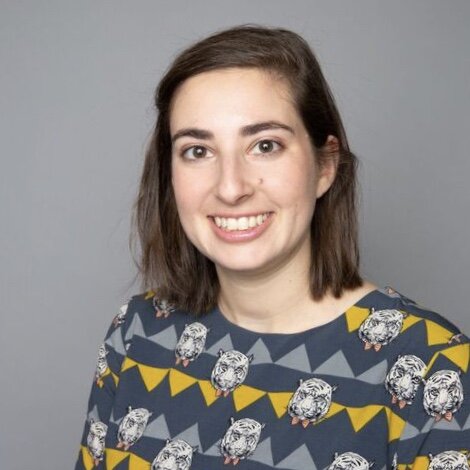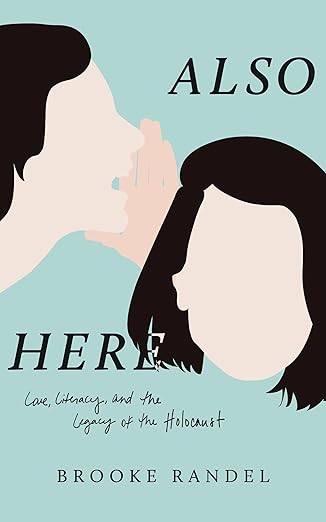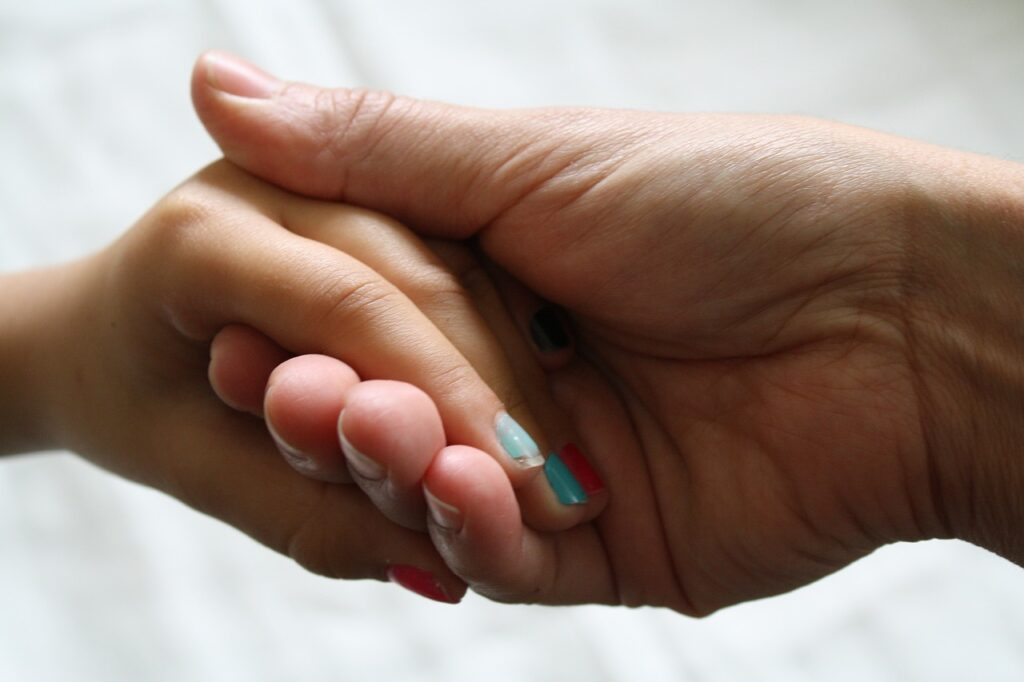 As a young girl Brooke Randel knew little about the Holocaust—just that it was a catastrophe in which millions were murdered, and that her grandma Golda Indig barely escaped that fate. But her Bubbie never spoke about what happened, and the two spent most of their time together making pleasant memories: baking crescent roll cookies, playing gin rummy, and watching Baywatch. Until an unexpected phone call when Golda said, out of the blue: “You should write about my life. What happened in the war.”
As a young girl Brooke Randel knew little about the Holocaust—just that it was a catastrophe in which millions were murdered, and that her grandma Golda Indig barely escaped that fate. But her Bubbie never spoke about what happened, and the two spent most of their time together making pleasant memories: baking crescent roll cookies, playing gin rummy, and watching Baywatch. Until an unexpected phone call when Golda said, out of the blue: “You should write about my life. What happened in the war.”
What results is a fascinating memoir—about one woman’s harrowing survival, and another’s struggle to excavate the story from under the sands of time, and her grandma’s illiteracy. Chronicling the darkness of the past and the difficult (and occasionally comic) challenges of bringing it to life in a sunny Florida condo, this book offers an insightful look into the relationship between grandparents and grandchildren, and the impossible pull of both silence and remembrance.
Brooke Randel is a writer, editor, and associate creative director in Chicago. Her writing has been published in Hippocampus, Hypertext Magazine, Jewish Fiction, SmokeLong Quarterly, and elsewhere. The granddaughter of a Holocaust survivor, she writes on issues of memory, trauma, family and history.
Her debut memoir, Also Here: Love, Literacy, and the Legacy of the Holocaust, is set to release on December 10. To celebrate the upcoming release, I am excited to share this Q&A.
 The title of the book comes from a very specific moment in the narrative. Can you talk a little bit about the significance of that moment and why you chose to title the book after it?
The title of the book comes from a very specific moment in the narrative. Can you talk a little bit about the significance of that moment and why you chose to title the book after it?
Brooke Randel: Also Here comes from my grandma’s words. After being separated from her sister at Auschwitz, Golda found a way to smuggle herself back into her sister’s work group. She sidled up to her sister, pinched her arm, and said, “I am also here.” By my own count, Golda’s life was saved at least five times during the war, but this was the moment when she saved her own life. The more I thought about the phrase, the more I knew it had to be the title. It reminds me of my grandma’s presence in my life, her here-ness despite everything. The overlap in our lives brought us both a great deal of misunderstanding, wonder, and love.
How did the manuscript evolve throughout the writing and editing process?
BR: Throughout the writing process, I thought deeply about the story my grandma wanted me to tell and the way I wanted to tell it. Were they the same? Opposed? Complementary? I had a lot of questions when I started writing, and as I moved through several rounds of edits, I found I had a lot more.
The structure of Also Here is well balanced between Golda’s story, your own story and research, and transcripts of your interviews with Golda. How did you decide what kind of structure this story would have? What did that process look like?
 BR: Nothing about trauma is cohesive or linear, so I knew the book would reflect that. I played with structure quite a bit, trying to find a balance between fractured but clear, coherent but true. I recently published an essay with Write or Die Magazine called “Writing in a Zigzag” that goes into detail about what it took to find the structure for Also Here. In short, it was a long, meandering road.
BR: Nothing about trauma is cohesive or linear, so I knew the book would reflect that. I played with structure quite a bit, trying to find a balance between fractured but clear, coherent but true. I recently published an essay with Write or Die Magazine called “Writing in a Zigzag” that goes into detail about what it took to find the structure for Also Here. In short, it was a long, meandering road.
What has the process of publication been like?
BR: I spent years looking for a publisher, then received two offers at once. So, that was surreal. Once I decided to move forward with Tortoise Books, I began editing the book based on editorial notes. Working with an independent publisher has been an amazing experience, and I’ve gotten to play a large role in determining the cover design, approving promotional copy, reaching out to booksellers, and more. It’s been both nerve-racking and exciting all at once.
What was the most unexpected challenge you’ve overcome on your writing and publication journey?
BR: It’s so hard to say when the whole process is a series of unexpected challenges. There’s no way to perfectly control the journey. In Also Here, I write about the challenges that came with transcription and research, and how something as simple as tracking down a name can turn into a whirlwind pursuit into family, legacy and lore.

What was the most rewarding moment you experienced during the writing process?
BR: Several years ago, I read an early draft of the book to my grandma. I was so nervous to read it aloud to her, both in having to repeat her own tragic words and to say all of my own, thoughts I’d never expressed to her before. Despite my nerves, those moments with her ended up being the most rewarding. We became much closer from this collaboration, which has nothing to do with publishing and everything to do with listening.
What is one piece of advice you would give aspiring writers?
BR: You don’t need advice. You just need to write. And read. And write again.
Pre-order your copy of Also Here today!
The book launch event will be held at The Book Cellar in Chicago on Tuesday, December 10 at 7 pm CST. Click here for more information and to RSVP.
And if you’d like a signed copy but can’t make the launch event, signed copies are available for pre-order here.
